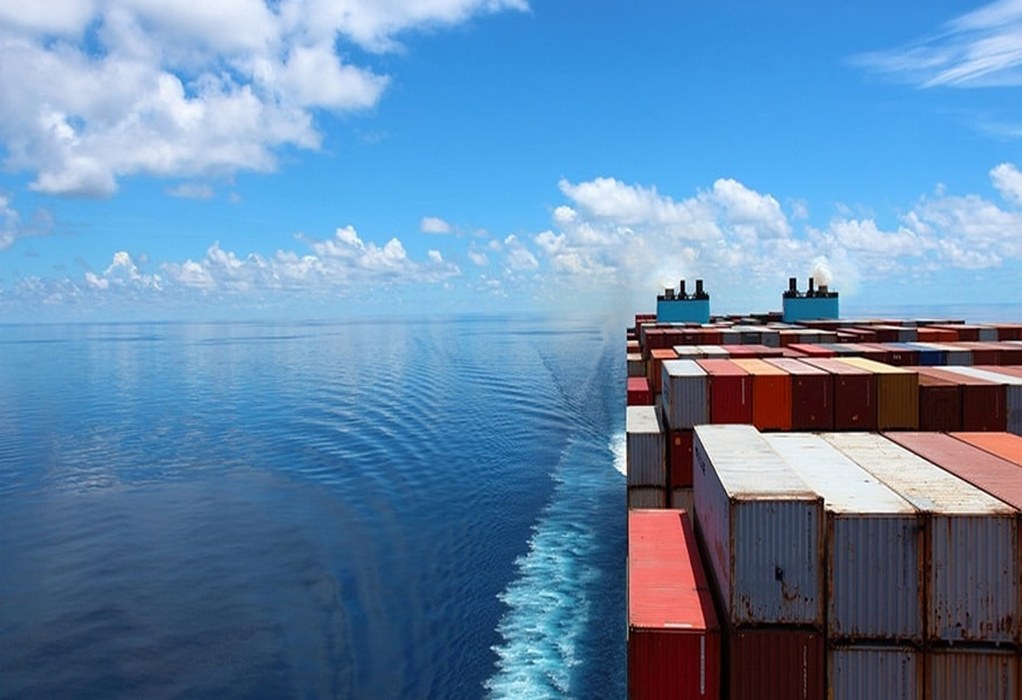Scandlines decided to replace the five propeller blades of the 4.6 meter diameter center propeller with smaller blades. It now has a diameter of 4.2 meters.
Copenhagen-headquartered Scandlines has installed new blades on the center propellers of the two battery-hybrid ferries it operates on the Gedser-Rostock route between Denmark and Germany. This has optimized the vessels for their current operating profile, improving propeller efficiency and giving a savings in propulsion energy of as much as 11%
The 169.5 meter long ferries, the Berlin and Copenhagen, were introduced in 2016 and were specifically designed for the route with a propulsion solution that features a centerline controllable pitch propeller/rudder and two outer Azipull wing thrusters.
They were originally optimized for a speed of 20 knots with three engines in operation: two on the center propeller and one for the hotel load and thrusters. As part of the company’s green agenda, the speed has been reduced to 16 knots and therefore only one engine is needed on the center propeller. However, the propulsion machinery of the vessel is not optimized for this speed and one main engine did not have sufficient torque to rotate the propeller at the designed pitch (angle of the propeller blade). In order not to overload the engine, this required the pitch to be reduced with a significant decrease in propeller efficiency decreases.
To address the issue, Scandlines decided to replace the five propeller blades of the 4.6 meter diameter center propeller with smaller blades. The propeller now has a diameter of 4.2 meters. In addition to improved efficiency, this also reduces vibration and the risk of bottom damage.
This is not the first fuel-saving modification Scandlines has made to the two ferries. In 2020, it installed a Norsepower rotor sail on Copenhagen and followed this by fitting a rotor sail on Berlin last year.
Tags: Propeller, Scandlines, Shippig



Recent Posts
Hyundai Glovis to Retrofit Seven PCTCs with Avikus AI Navigation System
Super Terminais orders three more Konecranes Gottwald ESP.10 Mobile Harbor cranes
Covestro and HGK Shipping Extend Partnership to 2040 with Focus on Wind-Assisted Vessel Retrofit
Artemis Technologies Successfully Demonstrates 100 Percent Electric Crew Transfer Vessel at Aberdeen Offshore Wind Farm
IACS Council Advances Decarbonisation, Digitalisation and Governance Priorities at C91 Meeting in Beijing
Japan Launches Major R&D Project to Advance Shipbuilding with Alternative Fuels
EU Adopts Emissions Standards for Low Carbon Hydrogen to Bolster Clean Energy Market
Trafigura to Implement ZeroNorth’s AI Platform Across Global Fleet